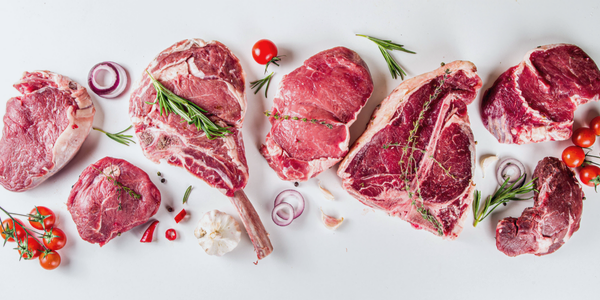
When it comes to weight loss, one may search for supplements and pills to burn more calories and shed those unwanted pounds. You know, anything green tea-related or slapped with the word "detox".
But do not shell out cash on gimmicky fad diet ploys just yet...
Take a peek at the research investigating dietary supplements and vitamins for weight loss.
Are There Any Supplements & Vitamins for Weight Loss?
Without adequate vitamin and mineral levels in the body, losing weight can become a real challenge. This is because the body requires specific, key nutrients to facilitate numerous physiological processes.
Vitamins do not actually provide energy in the form of calories. However, they do help the body in unlocking energy from stored energy sources such as fat.
The process of breaking down fat occurs in a stepwise fashion. Each step requires an active enzyme, or a molecular worker that makes things happen inside and outside cells. In many cases, a vitamin or mineral will activate, or basically "turn on" an enzyme. The activation allows fat cells to be broken down and used for energy.
So without sufficient vitamins and minerals in the body, the scale might move a little slower than anticipated and hoped. However, research supports supplements and vitamins for weight loss that may budge the scale a little quicker.
1. B Vitamins
From thiamin to vitamin B12, the eight B vitamins for energy and weight loss work related to their exclusive function. B vitamins help the body use energy obtained from foods and supporting a healthy metabolism.
However, the concept of moderation cannot be stressed enough. Some existing data suggests an excess of B vitamins may contribute to the development of obesity.
2. Vitamin C
Vitamin C burns fat related to its essential function in fat oxidation. The vitamin helps shuttle the fatty molecule to its next step of breakdown.
"Individuals with adequate vitamin C status oxidize 30% more fat during a moderate exercise bout than individuals with low vitamin C status," reported the Journal of the American College of Nutrition.
This leads researchers to believe vitamin C-depleted individuals may be more resistant to fat loss.
3. Calcium
While mostly known to play a role in bone health, there is also a link between calcium and weight loss. A meta-analysis assessed calcium on body weight and composition via supplementation and dairy food. Calcium supplementation or increased dairy food intake did not significantly affect body weight or body fat compared to the control group.
However, sub-analyses revealed dairy supplementation resulted in a greater reduction in body fat. This occurred in the presence of energy restriction over an average of four months.
Obesity also concluded increasing dietary calcium significantly augmented weight and fat loss secondary to caloric restriction. The increase of calcium likewise increased the percentage of fat lost from the trunk region. Dairy products also created a substantially greater effect.
Nonetheless, the researchers indicated approximately three servings of dairy may facilitate fat loss in weight-reduction diets in the short term.
Low-fat milk, cheese, cottage cheese, and yogurt are great sources of calcium. Non-dairy sources of calcium include leafy greens, canned sardines/salmon, fortified cereals, and soybeans.
4. Vitamin D
Beyond food sources and supplements, vitamin D is unique in the fact it can be obtained through sun exposure. Despite the unique availability, vitamin D deficiency has been linked to increased body fat and obesity over the years.
A study published in the European Society for Paediatric Endocrinology found vitamin D supplements may promote weight loss. Furthermore, vitamin D paired with calcium supplementation has been shown to slow the rate of weight gain in postmenopausal women.
Studies suggest calcium provides a small thermogenic effect, which raises the body's core temperature. In turn, metabolism may speed up and increase fat burn.
The intake of vitamin D enhances the absorption of calcium. This may also aid an appetite control mechanism and help keep hunger and cravings in check.
5. Probiotics
Probiotics are a type of living, "good" bacteria sourced from yogurt, sauerkraut, soft cheeses, fermented foods, and probiotic pills and supplements. Though most recognized for their digestive and immune support, probiotic supplements for energy and weight loss have too been investigated.
Probiotics may shed off weight by keeping the body's microbiome happy and healthy. What's more, there is a link between obesity and diabetes to microbiome imbalances.
The microbiome encompasses trillions of microorganisms living in the body, with both good and bad bacteria occupying the gut. When probiotics are present, research suggests they cause a beneficial shift in the microbiome that contributes to weight management.
There is corresponding evidence suggesting probiotics can significantly larger reductions in body weight and body fat percentages compared without one.
6. Protein Powder
Protein is important for weight loss in countless, beneficial ways. The macronutrient helps:
• Stimulate muscle growth
• Lend greater satiety
• Regulate hunger hormones
• Stabilize blood sugars to ward off cravings
• Increase energy expenditure
• Enhance fat burn
• Supply metabolic-supporting B vitamins
Like vitamins and other supplements, nutrition experts encourage whole food sources over protein powders. They do, however, have their time and place and can act as a convenient, healthy weight loss supplement.
7. Apple Cider Vinegar
Apple cider vinegar (ACV) is an apple-based vinegar produced from apple cider, bacteria, yeast, and acid. One of the most common and hopeful apple cider vinegar uses relates to weight loss.
Apple cider vinegar may not be the magic elixir for weight loss, yet it certainly can assist in efforts. ACV is low in calories, three calories per tablespoon, and offers a nutritious contribution to flavor foods.
The vinegar also contains acetic acid, a component believed to prevent fat accumulation, subsequently combating weight gain and reducing obesity.
8. Fiber
Eating a high-fiber diet is well-known to promote heart health, lower cholesterol, and manage weight. In fact, there is evidence fiber supplementation can potentially reduce energy intake and contribute to weight loss.
More specifically, a group supplementing with a fiber blend had a greater reduction in body weight and body mass index (BMI). They also had lower eating occasions and intake of grain food compared to those taking a lower fiber supplement.
Increase fiber intake by prioritizing whole grains, fruits, vegetables, and plant-based proteins. When increasing fiber, likewise be sure to keep hydrated to lower the risk of constipation.
9. Fish Oil
Fish oil is an excellent source of omega-3 fatty acids, a healthy fat that supports heart health and protects from inflammation.
A meta-analysis suggests overweight and obese individuals may benefit from reducing abdominal fat and waist circumference with fish oil supplementation. This is particularly true when combined with lifestyle modifications.
The Recap on Supplements & Vitamins for Weight Loss
The key to successful weight loss is not Google searching for the "best vitamin for weight loss", "fastest working diet pills", or "top weight loss supplement". Instead, a comprehensive healthy lifestyle trumps all.
Yes, healthy weight loss supplements do exist. But realize they are meant to supplement a healthy diet, not replace it.
Ultimately, consume food sources rich in those nutrients that offer bonus benefits for health in other ways beyond tipping the scale.







